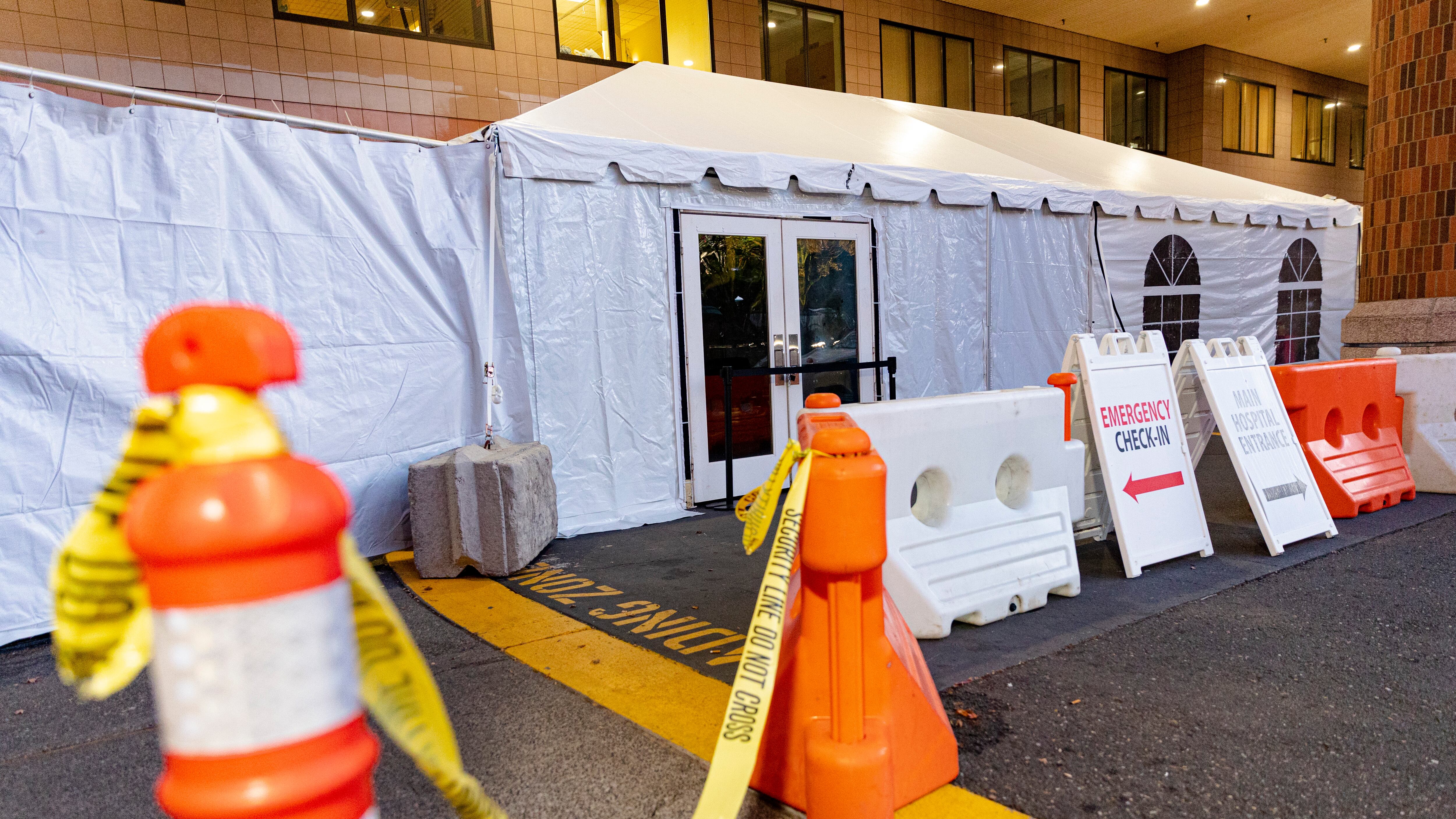Providence Portland Medical Center has a 49-person COVID-19 outbreak within the hospital, Providence officials acknowledged Friday afternoon after it was listed in a state report.
Of the 49 cases the hospital identified, 13 were patients when they were exposed and another 36 were "caregivers." (The hospital did not answer a question about whether the outbreak had spread to the wider Portland community, affecting contacts of patients and Providence employees.)
On the one hand, hospitals are a high-risk environment serving COVID-19 patients. On the other, hospitals are supposed to have in place the tightest controls for infection. But that did not prevent a massive outbreak.
The Providence patients were not on a COVID-19 ward when the outbreak occurred. Instead, nurses union officials say, the outbreak was on 4k, an in-patient rehabilitation unit, where people recover from traumatic brain injuries, strokes and similar injuries.
Providence officials say the hospital addressed the crisis "proactively."
"On Dec. 22, we had a COVID-19 outbreak on an 18-bed unit at Providence Portland Medical Center," said Gary Walker, director of communications for Providence in Oregon.
Walker says that all but one of the patients has been discharged. "One patient is still being treated for non-COVID-related conditions," he says. "Providence proactively tested 217 caregivers who either worked on the unit or came into contact with patients from the unit. Of that group, 36 caregivers tested positive. As of today, 24 of the 36 have returned to work."
The last positive COVID-19 test from the outbreak was on Dec. 31, Walker says, and the unit has been closed, cleaned and not reopened yet.
Oregon Nurses Association officials and members recounted a different series of events, challenging the idea that the hospital had been on top of the crisis.
Sarah Brown, a nurse on the unit who spoke with WW as a member of the union advocating for safety changes, said the first case arose inexplicably earlier in December in a patient who had previously tested negative before being admitted to the ward.
At the time, the hospital did not trace contacts with the patient, as far as Brown is aware, or test nurses and patients on the unit until a group of nurses and patients began reporting symptoms a week or 10 days later, Brown told WW.
Brown says she believes nearly every nurse on the ward but her tested positive for COVID-19.
How did she escape the virus?
She wore a "fit-tested" N95 mask, meaning she had the highest level of protection. She had received the N95, which protects the wearer when it is properly fit, only because she had to work on a COVID-19 floor earlier this year.
"I believe that's why I was negative," Brown says. "I was caring for patients who tested positive."
The hospital has not elected to make the higher-quality respirator masks available to all nurses and to fit nurses for them, she and others with the ONA say.
Brown mentioned the hospital could have required fit-tested N95s for all the nurses and made sure there was safe ventilation and "proper contact tracing" for the initial case.
"In my observation, I think it was multiple things that went wrong that just ended up in a catastrophe," she said.
Oregon Nurses Association spokesman Kevin Mealy says some of the nurses were not notified of the outbreak for four days—specifically, the pool of nurses who float around the hospital, filling in where needed, a delay that potentially increased the risk for other nurses and patients throughout the hospital.
The outbreak comes amid a bitter, ongoing dispute between Providence and its nurses union about whether they are adequately protected on the job.
Providence nurse Kim Martin, who is on the union's bargaining committee, says she asked management for N95 masks for nurses. "I've had [nurses] tell me that when they got to the COVID floor, they feel safe," she says. The reason: They are given better access to even higher-quality protective gear.
"It's sad and disturbing and frustrating," Martin says, arguing the hospital should have agreed to the union's demands for safety at some point in the past 10 months. "I know COVID has been difficult for people all over the nation, but if Providence had agreed to what the nurses had been asking for in their 'COVID Bill of Rights' 10 months ago, a lot of anxiety, a lot of frustration and a lot of anger and a lot of illness could have been prevented."
The union's demands include guaranteed access to testing for staff, "appropriate" personal protective equipment, paid time off in the event of COVID-19 diagnosis, as well as a presumption that they got COVID-19 on the job.
Providence did not answer questions from WW on the source of the outbreak, whether air quality or poor ventilation had played a part, or whether adequate protective gear was provided to nurses in the past or whether that would change in the future.
The hospital also did not answer a question about why some nurses may not have been notified promptly of the exposure risk.
Walker at Providence says the hospital is conducting "genomic testing"—an apparent effort to figure out if the new, more contagious strain of COVID-19 has arrived in Oregon and impacted the spread of the virus in this case.
An Oregon Health Authority official said: "OHA, in collaboration with the [U.S. Centers for Disease Control and Prevention], has been closely monitoring laboratory test results in Oregon in an effort to detect new variants (mutations) of the COVID-19 virus, including the variant that recently emerged in the United Kingdom. So far, the variant has not been detected in any cases in Oregon."
OHA officials declined to comment on the outbreak at Providence, saying "we can't comment on an individual outbreak."
The outbreak comes as the vaccine has arrived in the state, and is one more reminder of the stakes attached to that delayed effort.
